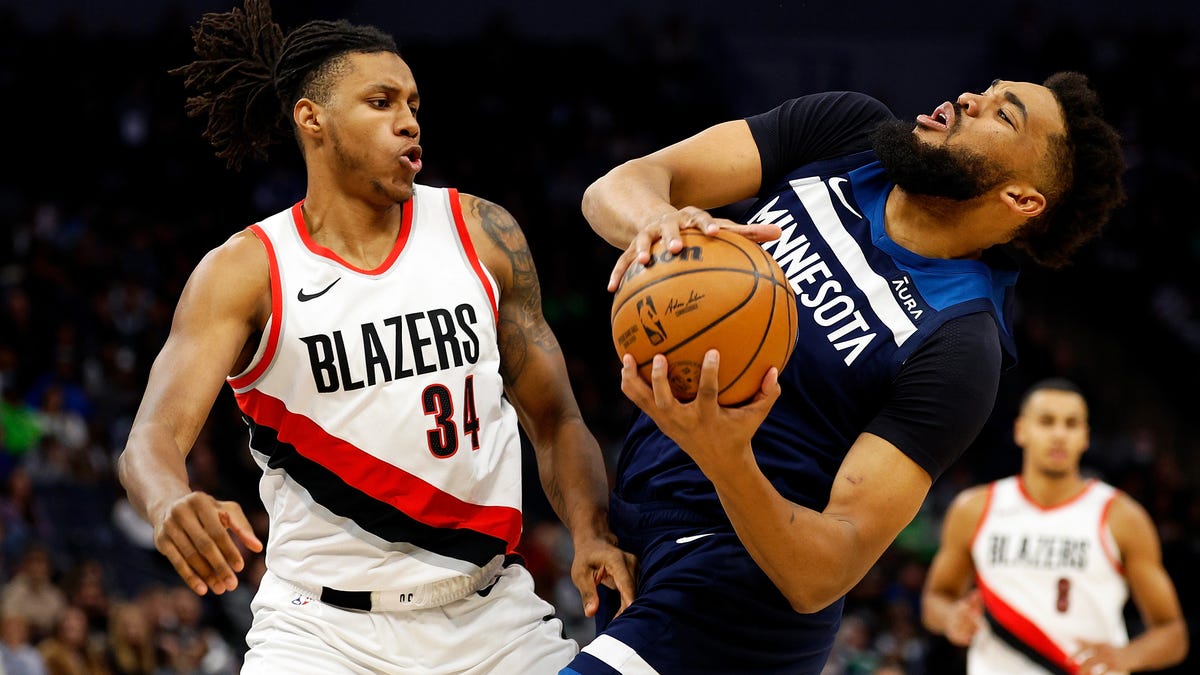The NBA’s annual battle of attrition that precedes the playoffs struck again as Minnesota Timberwolves big man Karl-Anthony Towns is out indefinitely with a torn meniscus. It’s the same ailment that forced Philadelphia Sixers center Joel Embiid to the sidelines, and one that should be treated with an abundance of caution and patience. However, with the postseason looming in a month, caution and patience are luxuries ill-afforded to teams vying for seeding.
The Miami Heat are one of the great underdog stories in NBA history | Keep it a Buck(et)
In addition to those two menisci injuries, New York Knicks All-Star Jalen Brunson suffered a knee contusion while the team awaits the return of Julius Randle and OG Anunoby. Out West, Russell Westbrook just underwent surgery for a broken hand. Fortunately, all of the players mentioned above haven’t been ruled out for the remainder.
It’s simply the time of year when teams’ best-laid seasons are upended, the NBA shrugs its shoulders, and says, “Maybe if you eschewed load management, this wouldn’t have happened.” Well, Adam Silver, KAT had only missed two games prior to this injury, and Brunson just five.
In fact, Minnesota and New York haven’t managed any players’ loads all season, and play their top guys big minutes. Brunson, Towns, Randle, Anunoby, Anthony Edwards, and Rudy Gobert all average more than 30 minutes per night, which is probably why they should be able to withstand these injuries until the playoffs.
The Wolves and Knicks took the regular season seriously (because Tom Thibodeau doesn’t know any other way, and if Chris Finch relents for one second, Edwards and Towns are liable to get distracted by the timeout entertainment). Regardless of why the Knicks and Wolves choose their respective paths, it’s hard not to think of the Association’s draconian approach to playing time. They adhered to the gobbledygook that the league office spouted about load management, and might not have the means to reap the rewards come April.
Full disclosure, I’m anti-load management because injuries are nature’s way of turning over rosters and keeping the league fresh. At the same time, the players are right, and should absolutely track and regulate their wear and tear and careers. I’m pro-effort and pro-science; you can want both competition and healthy rosters. Two things can be true at once, but probably not three.
The third, in this case, is the impossible: An incredible regular season, healthy rosters for the playoffs, and 82 games. No one is even saying the calendar dates of the season have to change, just the number of contests. Basketball is reliant on stars perhaps more so than any other sport, and without them, the postseason suffers.
Think about how screwed an NFL team is when it loses its starting quarterback. Well, in the NBA, there are two or maybe even three QBs — from a significance standpoint — on a given contender. Minnesota is only going as far as Anthony Edwards takes them, but that’s still contingent upon the quality of the supporting cast.
With KAT’s status up in the air amid a tight race in the West, the Wolves could go from the No. 1 seed to No. 4 in a matter of games. The Knicks have already fallen back to the play-in grouping, and are desperately treading water. Maybe if every organization operated with the same integrity as Thibs and Finch, every team would be dealing with the same amount of injuries to keep this process fair. That said, America wasn’t built on equality though, it was built on gaming the system.
That’s what the Warriors, Lakers, Heat, Suns and other veteran teams are doing, because any rando off the street could tell you that being healthy for the playoffs is paramount to seeding or an All-NBA nod. It’s easy to take potshots at Minnesota and not take them seriously, but no one wanted to see their predictions come true this way. I’d much rather Karl-Anthony Towns torpedoes his team’s chances trying to score 80 than with a knee injury. Alas …
